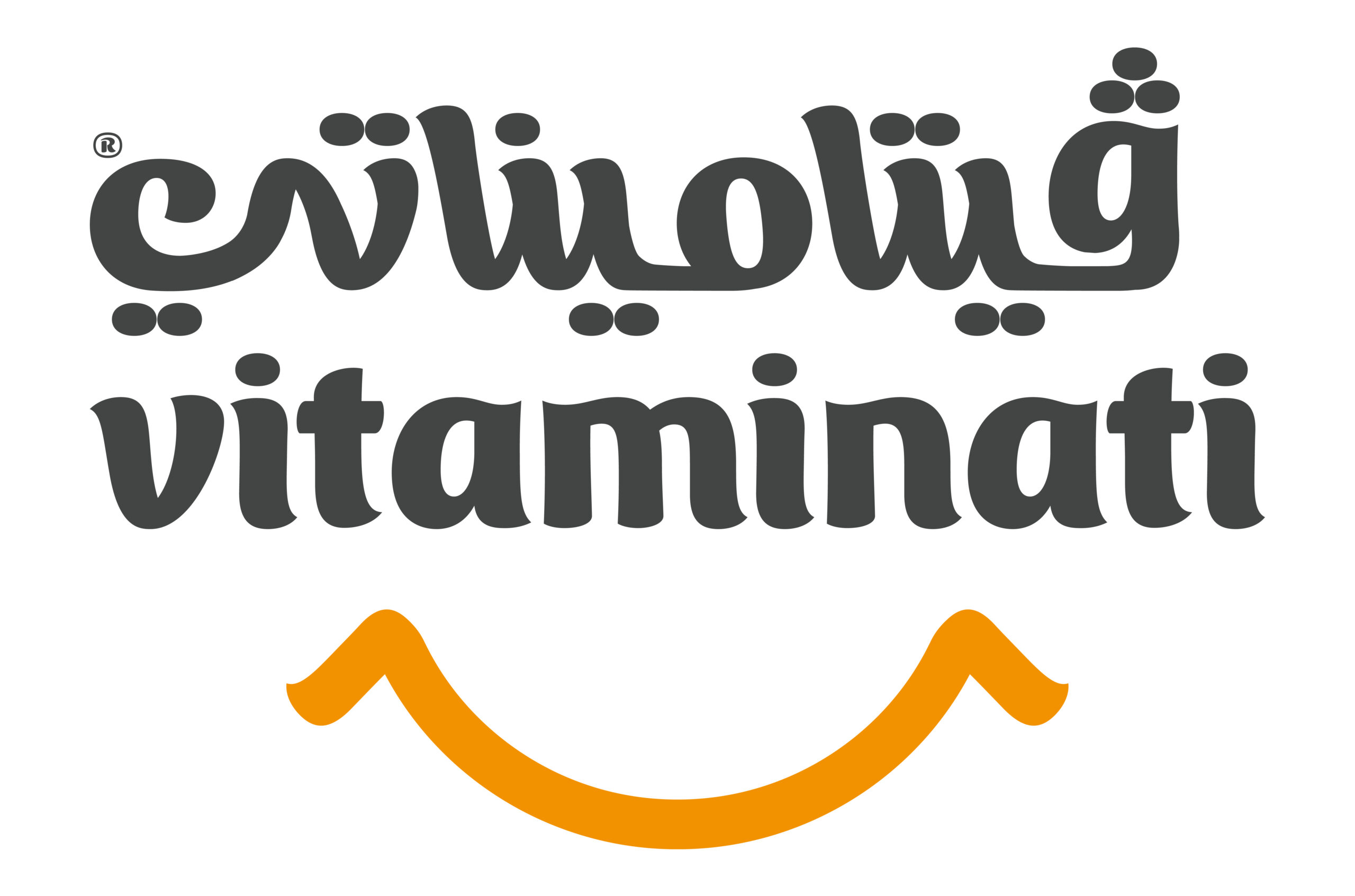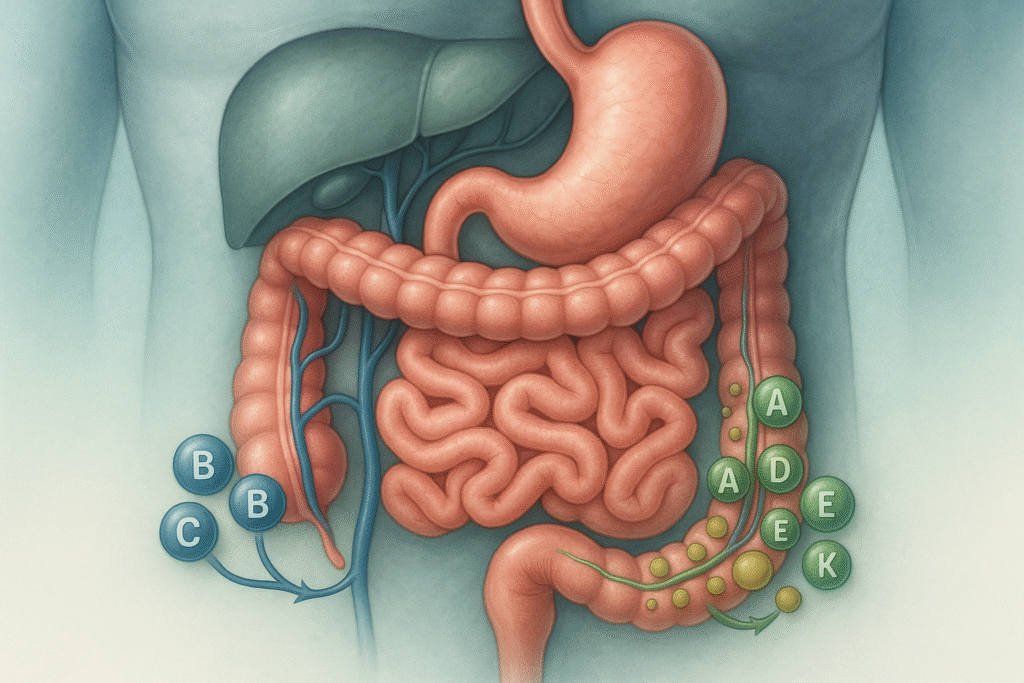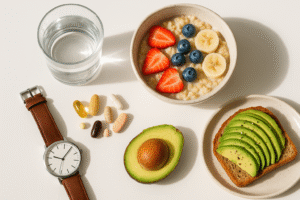Table of Contents
ToggleWhy Do We Need to Understand Vitamin Absorption?
Understanding how the body absorbs vitamins is essential for maintaining overall health and making the most of your diet. Vitamins act as key micronutrients that drive countless biological functions — from energy production to immune defense.
According to the Office of Dietary Supplements (ODS) and the World Health Organization (WHO), vitamin absorption depends on factors such as their chemical nature, digestive health, and food quality.
Eating vitamin-rich foods doesn’t always guarantee full benefit unless your body absorbs them efficiently. Learning how absorption works helps you prevent deficiencies, even when you follow a balanced diet.
What Is Vitamin Absorption and How Does It Work?
The small intestine absorbs vitamins from digested food and transfers them into the bloodstream. The process begins in the stomach, where digestive juices break down nutrients. Then, the vitamins move into the small intestine, where specialized cells actively transport them into the blood.
Each vitamin category follows its own absorption path. Water-soluble vitamins pass directly into the bloodstream, while fat-soluble vitamins need dietary fats and bile to move effectively. The presence of proteins, minerals, and healthy fats improves absorption efficiency.
When you eat balanced meals that combine different nutrients, your body absorbs vitamins more effectively. In contrast, processed or nutrient-poor meals weaken absorption and reduce the body’s ability to use vitamins properly.
Absorption of Water-Soluble Vitamins:
The body easily absorbs water-soluble vitamins because they don’t require fats for transport through the intestinal wall. This group includes Vitamin C and the eight B vitamins (B1, B2, B3, B5, B6, B7, B9, and B12).
Protein carriers in the intestine move these vitamins into the bloodstream. According to ODS, intestinal cells actively regulate this process — they take what the body needs and excrete the rest through urine.
Examples: Vitamin C and B-Complex Vitamins.
The small intestine absorbs Vitamin C quickly and sends it through the blood to tissues. This vitamin supports collagen production, strengthens the immune system, and protects cells from oxidative damage. It also boosts iron absorption from plant-based foods, preventing anemia and improving energy levels.
Each B vitamin follows a slightly different absorption route:
-
The upper small intestine absorbs B1, B2, and B3.
-
The middle section absorbs B6 and B9 (folate).
-
B12 requires an intrinsic factor, secreted by the stomach, for absorption in the lower intestine.
This mechanism explains why some people experience Vitamin B12 deficiency even with sufficient dietary intake — their stomachs may not produce enough intrinsic factor.
Functions in the Body:
Water-soluble vitamins help the body convert food into energy, support nerve and immune functions, and maintain healthy skin and hair. They also aid in red blood cell production and improve mood and focus by contributing to neurotransmitter formation.
When you get enough of these vitamins, your body feels more energetic and resilient. A deficiency, however, often leads to fatigue, recurring infections, and hair loss.
Storage and Excretion:
The body doesn’t store large amounts of water-soluble vitamins. It uses what it needs immediately and eliminates the rest through urine. Vitamin B12 is the only exception — the liver can store it for several years.
To stay healthy, you need to replenish these vitamins regularly through your diet. Foods such as spinach, oranges, and lentils improve vitamin absorption and boost their effectiveness in the body.
Absorption of Fat-Soluble Vitamins:
The body needs healthy fats to absorb fat-soluble vitamins — A, D, E, and K. These vitamins are vital for growth, vision, bone strength, and immunity.
When you eat meals containing fats, the gallbladder releases bile, which helps these vitamins dissolve and form micelles that pass easily into the bloodstream. Lipoproteins then carry them to organs, where they perform essential functions.
A lack of dietary fat or liver and gallbladder disorders can reduce absorption. For this reason, experts recommend taking these vitamins with foods containing olive oil, avocado, or nuts.
Examples (A, D, E, K):
-
Vitamin A: Supports night vision, skin health, and immunity. Sources include liver, egg yolks, and carrots.
-
Vitamin D: Produced by the skin when exposed to sunlight and found in oily fish. It helps absorb calcium and supports bone and immune health.
-
Vitamin E: Protects cells from oxidation and promotes healthy blood flow. Found in plant oils and nuts.
-
Vitamin K: Aids normal blood clotting and protects bones. Found in leafy greens such as spinach and kale.
Core Functions:
Fat-soluble vitamins strengthen cell membranes, regulate hormones, enhance immunity, and reduce inflammation. They also slow premature aging and maintain healthy, flexible blood vessels. When you get enough of them, your skin, vision, and bones noticeably improve.
The Role of Vitamins in Immunity: How Essential Nutrients Strengthen Your Body’s Defenses.
Storage in the Liver and Fat Tissues:
The liver and fat tissues store fat-soluble vitamins for future use and release them gradually when needed. This system helps maintain nutrient balance during times of limited food intake. However, excessive consumption can lead to harmful accumulation, especially with Vitamins A and D, so proper dosing is essential.
Factors That Affect Vitamin Absorption:
Several factors influence how well the body absorbs vitamins:
1. Type of Food and Fat Content.
The quality of food and fat in a meal strongly influence absorption. Healthy fats improve the uptake of fat-soluble vitamins, while fat-free meals limit their effectiveness. Overcooking food can destroy water-soluble vitamins like C and B, reducing absorption.
2. Digestive Health.
Digestive disorders such as Crohn’s disease or intestinal inflammation interfere with nutrient absorption. Liver and pancreatic problems also reduce absorption of fat-soluble vitamins because they lower bile secretion.
3. Medications and Supplements.
Certain medications disrupt vitamin absorption. Cholesterol-lowering drugs reduce Vitamins D and E, while long-term antibiotic use decreases Vitamin K. Taking too many supplements at once can also cause competition among vitamins, lowering their efficiency.
How a Healthy Lifestyle Improves Absorption?
A healthy lifestyle directly boosts vitamin absorption. Balanced meals and regular exercise improve digestion and blood flow. Adequate sleep and stress management help regulate hormones involved in nutrient uptake.
In contrast, habits like smoking and excessive caffeine damage the intestinal lining and reduce absorption efficiency. Adopting healthy daily routines remains the best way to maximize nutrient absorption and support long-term wellness.
Conclusion: Understanding Absorption = Better Health and Greater Benefit.
Understanding how your body absorbs vitamins is key to making the most of both food and supplements. When you know how absorption works and what enhances it, you can make conscious choices that strengthen your health.
In short, effective vitamin absorption equals more energy, stronger immunity, and lasting vitality. Eat a diverse diet, keep your digestive system healthy, and practice daily habits that support nutrient balance.
Frequently Asked Questions (FAQs):
1. What’s the difference between the absorption of fat-soluble and water-soluble vitamins?
Water-soluble vitamins enter the bloodstream directly and exit through urine, while fat-soluble vitamins need dietary fats and stay stored in the liver and tissues.
2. What factors reduce vitamin absorption?
Low fat intake, digestive issues, medications, and overcooked food can lower absorption.
3. How can absorption be improved?
Eat foods rich in healthy fats, drink plenty of water, and stay physically active.
4. Can poor absorption cause vitamin deficiency?
Yes. Even with a nutrient-rich diet, deficiencies can occur if the body doesn’t absorb vitamins properly.
5. What are the signs of poor absorption?
Common signs include fatigue, poor focus, hair loss, and skin problems.
PharmD with expertise in pharmaceuticals and a passion for making medical knowledge clear, accurate and accessible to all








